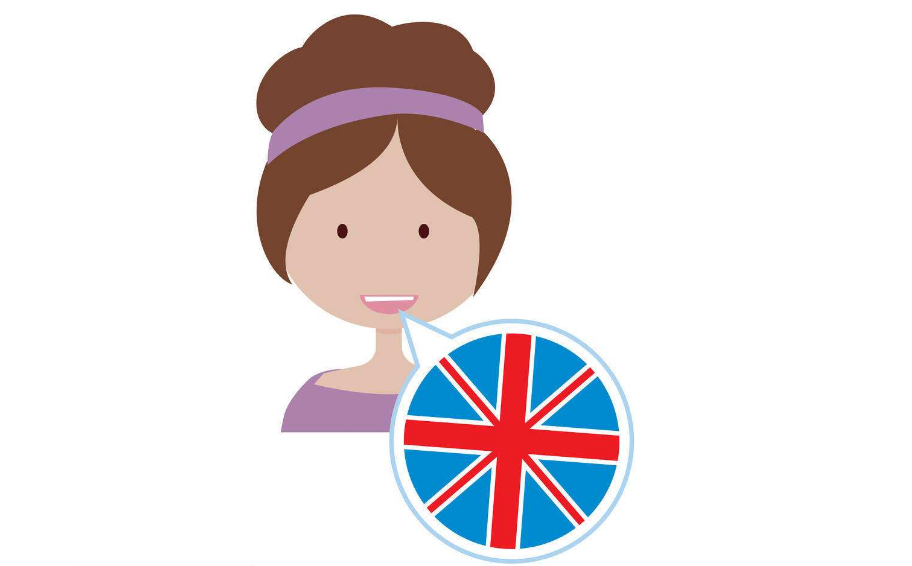学英语过程中,我们难保不会用中式思维套用英语。所以,会出现很多中式表达的英语。
没有及时纠正,很容易一直使用错误的说法。下面这10句,就是被很多人乱用的表达。看看你有没有?
eat soup(√)
drink soup(×)
喝汤是中国人的饮食习惯。那么,喝汤在英文中是"drink soup"吗?当然不是!
因为西餐里汤一般很稠,汤里有奶油、肉、蔬菜等很多种东西,没法喝,必须送到嘴里咀嚼。
所以,喝汤在英语中是 eat soup 。
同样的,中文里的喝稀饭也不能用"drink porridge"来表达,而是 eat porridge。
如果实在觉得不习惯,我们可以用中性词have来表达食用。
如:
have soup 喝汤
have tea 喝茶
have a drink 喝酒、喝水
have a cigarette 抽烟、吸烟
have a candy 吃糖
have an apple 吃个苹果
have fish 吃鱼
take medicine(√)
eat medicine(×)
看到这里,还能认为吃药是"eat medicine"吗?
英文中 eat,通常含有咀嚼的意味,但是我们很少会咀嚼药品,所以吃药的地道表达是 take medicine。
如:
A:I had a cold.
B:No need to take medicine for this illness, with a couple of days of rest you'll be all right.
A:我感冒了。
B: 这病不用吃药,休息一两天自然会好的。
当然了,我们这里用 have medicine 这个中性词表达也可以。
look sth up in the dictionary(√)
check dictionary(×)
查字典——很多同学会不小心说成check dictionary。
其实,查字典有固定的三种表达:
look sth up in the dictionary
consult a dictionary
refer to a dictionary
如:
If you don't know a word, you can look it up in a dictionary.
如果你有不识的字,可以查字典。
If you have no idea about it, consult a dictionary, please.
如果你不知道这是什么意思,可以查查字典。
Why grope after the meaning of a word? Refer to the dictionary!
何必苦苦思考这个词的意思?查字典吧!
blond hair/sandy hair(√)
yellow hair(×)
黄头发,千万不要说成“yellow hair”!这种颜色在英语文化中是比较敏感的。
比如你看到一个黄种人,直接叫他/她 yellow,这里就有种族歧视的意思。
所以不要用yellow hair来表达黄头发,而是用 blond hair 或者 sandy hair。
如:
The actress wore a black wig over her blond hair.
女演员的金发上戴着黑色的假发。
Kevin was a pleasant if tired-looking man, with thinning, sandy hair, clear blue eyes.
凯文外貌讨人喜欢,稀疏的黄头发,清澈的蓝眼睛,但略带倦色。
do homework(√)
write homework(×)
Write homework——又是中式思维在作祟。为什么不能使用write homework?
使用 write 后面一般跟具体的东西,强调写这个动作。比如 write an article 写文章,write a report 写报告。
但是作业有时候不都是用笔写,有时候需要背诵。这样理解是不是会好一点呢~所以,英语中写作业的习惯表达就是 do homework。
如:
It's 8 p.m. and it’s the time to do your homework.
现在八点钟了,到你做作业的时间了。
I wish you a good holiday.(√)
Wish you have a great holiday(×)
英语中可以用wish一词来表示用于生日和过年过节的“祝福”。 祝你有个美好的假期,如果说成Wish you have a great holiday,这是典型的Chinglish。
wish表示“祝愿”的用法是 wish sb. sth. 通常接双宾语。
如:
We wish you a Merry Christmas and a Happy New Year.
我们祝你圣诞快乐,新年幸福!
How do you say it in English?(√)
how to say this in English? (×)
这个用英语怎么说——中式思维表达为:how to say this in English? 而地道的英语表达为: How do you say it in English?
How to say是在中国最为泛滥成灾的中式英语之一,这不是地道的英语说法。
同样的句子有:
How do you spell that please?
这个词如何拼写?
How do you pronounce this word?
这个单词怎么读?
I have a few problems.(√)
I have a lot of difficulties. (×)
一看到困难,好多人会翻译成 I have a lot of difficulties 。但口语中会将这句话表达为:I have a lot of troubles/problems 。
还有一句习惯用语 run into a stone wall ,也可以表示遇到困难而难以前行。
如:
We've run into a stone wall in our investigation.
我们在调查中遇到了困难。
turn on the light(√)
Open the light(×)
如果按照中式思维说英语,看到开灯会想到Open the light。
但英语中关于开关电器有固定的表达,那就是 turn on/turn off。
例如:
I don't know how to turn on the computer, could you help me with it?
我不知道怎么开电脑,你能帮我吗?
I can't speak english very well, but I'm getting better.(√)
My English is poor. (×)
经常会听到中国人会说My English is poor. 说实话,还从来没有听到一个美国人说:My Chinese is poor.
无论他们的汉语是好是坏,他们会说——
I am still having a few problems, but I'm getting better.
或者——
I am not 100% fluent, but at least I am improving.
所以小伙伴们,不要再说自己的英语不好了,总有一天我们的口语会100% fluent!
2017-11-17 11:02来源:How to Speak English Fluently – 2 Unusual Tips作者:分享到
1. Forget grammar!
1.忘记语法!
That’s right. This may seem strange to you, but it is very important.
没错,听起来很奇怪,但非常重要!
If you are preparing for an examination, then you should study grammar. However, if you want to become fluent in English conversation , then you should try to learn English without thinking about grammar too much.
如果你正在准备考试,那么你应该学习语法。但是,如果你想流利地用英语对话,那么你应该尝试剔除语法对你的干扰。
The reason why I say this is that to become fluent, you need to be able to speak without pausing to think of the correct words and sentence construction.
之所以这么说,是因为要想流利地讲英语,你必须能够不停顿地说出正确的单词和句子结构。
If you are constantly trying to translate what you want to say from your own language into English, whilst thinking about all the grammar rules you’re supposed to be using, you’ll most likely become bogged down, hesitant and fail in your fluency goal.
如果你一直在试着把你想说的话按照你自己的语言翻译成英语,同时考虑所使用的所有语法规则,你很可能会陷入困境,犹豫不决,那么就不可能流利地讲出英语。
2. Learn natural phrases or ‘chunks’ you can adapt for any situation!
2.学习短语或“词汇块”,你可以适应任何情况!
What you need to do is to learn and study phrases instead of trying to speak in sentences.
你需要学习和研究短语,而不是试图用句子来表达。
You may be familiar with a large range of vocabulary, but are probably not able to create fluid conversation (natural flowing speech). This could be because you fail to recognise the differences between spoken and written English, one of which is that when speaking, people use phrases instead of sentences.
你可能熟悉大量词汇,但可能无法进行流畅的对话(自然流畅的语言)。这可能是因为你没有意识到口语和书面语之间的区别,原因之一在于,人们在说话时用短语而不是用句子表达。
These include collocations (words that commonly go together) such as ‘rich and famous, denselypopulated, keep a secret, break a promise or take a seat‘; phrasal verbs such as ‘get up, log on, run out of’; idioms like ‘part and parcel, make ends meet’, and social formulas such as ‘see you later, have a nice day’ and so on.
这些词汇包括词的搭配(通常连在一起的词汇)如“rich and famous(富裕而著名),densely populated(人口稠密),keep a secret(保守秘密),break a promise(违背诺言)或take a seat(坐下)”;动词短语如“get up(起床),log on(登录),run out of(用完);成语“part and parcel(不可缺少的一部分),make ends meet(入不敷出),社会俗语如“see you later(再见)”,“have a nice day(祝你有美好的一天)”等等。
